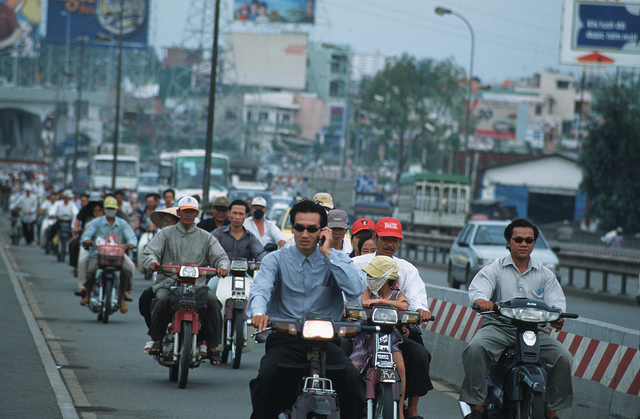
A report by the World Bank entitled The High Toll of Traffic Injuries: Unacceptable and Preventable argues GDP could rise by almost a quarter in some developing countries as a result of halving yearly road deaths and injuries.
The study, funded by Bloomberg Philanthropies, analyses data on fatalities and harmful road accidents in China, India, the Philippines, Tanzania and Thailand and suggests that such a reduction in accidents over the next twenty years could add from seven to 22 percent to per capita wealth.
“The level of investment in road safety globally remains inadequate to effectively address the scale of the problem.” Soames Job, global lead road safety and head of the The Global Road Safety Facility (GRSF) at the World Bank, told Development Finance.

Dipan Bose, senior transport specialist at the World Bank, added that it is crucial that the aims of future forward initiatives account for road safety in legislation and civilian learning rather than on spot improvements.
“These interventions must go beyond infrastructure and include enforcement and other regulatory frameworks backed by awareness campaigns, to ensure optimal safety performance.”
Bose said that although road safety falls within the responsibility of governmental departments, public-private partnerships and the private sector play an important role in enabling stronger and more sustainable road safety measures. He pointed to the private sector’s contribution through corporate social responsibility and the creation of innovative and catalytic funding streams, as well as the filling of data gaps through better collection resources.
“Besides funding, the private sector can also play a key role in building technical capacity and pilot initiatives,” Bose said. “A notable example is the coalition of motor vehicle inspection companies (CITA) which together with the World Bank is committed to improving standards in vehicle inspections and import standards in countries where federal laws do not regulate such standards and thus adversely impact the safety performance of vehicle fleets.”
One example of a successful PPP partnership in road risk management was launched in Nigeria by the World Bank, which helped in forming a road safety coalition in the country that later created a model safe road corridor able to fund outreach campaigns. In another instance, a joint venture named the TOTAL-World Bank Global Road Safety Facility initiative was set up for regional corridor road safety across Africa. The focus of the programme is to reduce road crashes along major transport corridors involving the local community by installing safety measures for vulnerable road users.
Drinks company Coca-Cola in India also operate extensive vehicle fleets to ensure road safety under the banner of corporate social responsibility and vehicle management and safety.
The Bloomberg Philanthropies Initiative for Global Road Safety has meanwhile dedicated US$259 million over 12 years to help implement interventions that have proven effective at reducing road traffic fatalities and injuries in low and middle-income countries. Their success, according to the initiative, lies not only in legal regulation but in their effective communication to citizens.
“A respectful relationship between civil society, enforcement agencies and policy makers, made possible through appropriate communication channels, is critical for sustaining road safety initiatives,” added Job.

